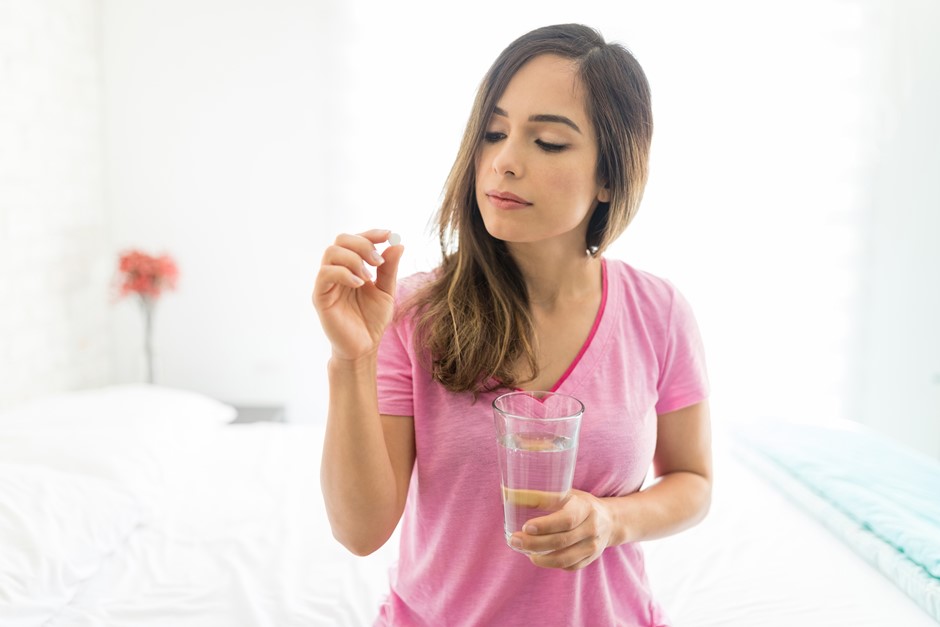You might want to use the morning after pill following unprotected sex, or if your usual contraception hasn’t worked. For example, maybe you have missed more than one contraceptive pill, or a condom split during sex. If you don’t wish to become pregnant but something like this happens, it may cause you to feel anxious.
However, there are treatment options available that can help to prevent you from conceiving, and the morning after pill is one of them. This is a type of emergency contraception that, when taken correctly, can be highly effective at preventing pregnancy. For best results though, it’s important that you know how to use it.
In this blog, we talk you through when you can take this type of emergency contraception. We’ll also answer some commonly asked questions, including whether you can drink alcohol or eat after using these pills, and outline how you will know if the morning after pill has worked.
When can you take the morning after pill?
Exactly how long after unprotected sex you can take the morning after pill depends on the type you use. However, as a general rule, the sooner you take this contraception, the more effective it will be.
There are two main types of morning after pill: those that contain the active ingredient levonorgestrel, such as LoviOne, and those that contain the active ingredient ulipristal acetate. Levonorgestrel, which is a synthetic version of the hormone progesterone that’s produced naturally by the ovaries, is taken to delay or stop the release of an egg. It should be taken as soon as possible and within three days (72 hours) of you having unprotected sex in order to prevent pregnancy.
Ulipristal acetate is a type of medicine known as a selective progesterone receptor modulator. It prevents progesterone from working normally and is used to delay or prevent ovulation (the release of an egg). You can use ulipristal acetate up to five days (120 hours) after sex to prevent pregnancy.
As we highlighted earlier however, while you can use the morning after pill up to three or five days after unprotected sex (depending on the type you take) for maximum effectiveness, you should take it as soon as possible.
Can you take the morning after pill while breastfeeding?
The safety of taking ulipristal acetate while breastfeeding isn’t known yet, so the manufacturer advises that people should not breastfeed for one week after they have taken this pill. In contrast, levonorgestrel may be suitable to take while breastfeeding. While small amounts of the hormones contained in the pill may get into the breast milk, they are not thought to be harmful to babies. However, it is recommended that you take the tablet immediately after breast feeding and avoid nursing for at least 8 hours.
Can you drink alcohol after taking emergency contraception?
You can drink alcohol after taking emergency contraception, but bear in mind that doing so increases your risk of being sick, this could have an impact on the effectiveness of the treatment.
If you vomit within three hours of taking either ulipristal acetate or levonorgestrel, you should speak to your pharmacist as you may need to take another dose or have an intrauterine device (IUD) fitted.

Can you eat after taking emergency contraception?
You can eat before or after taking emergency contraception. It’s important to be aware that one of the possible side effects of taking the morning after pill is nausea. This can occur with or without vomiting.
So it may be best to avoid any foods that might upset your stomach and make you more likely to be sick.
How do I know if the emergency contraception worked?
You will only know for sure that emergency contraception has worked when you get your next period. After taking either levonorgestrel or ulipristal acetate, most women have a normal period at the time they expect. So, if your period arrives on schedule and you have no other unusual symptoms, you can be confident that you are not pregnant. However, some women do find they have their periods earlier or later than normal after using emergency contraception. If this happens to you, or if you have irregular periods, you can use a pregnancy test to check if you are pregnant.
You can do most pregnancy tests from the first day of a missed period. However, if your cycle changes or you have an irregular cycle, you may not know when this is. In this case, the NHS recommends testing at least three weeks (21 days) after you last had unprotected sex.
Bear in mind that while positive tests are almost certainly correct, a negative result is not as reliable. You could get a false negative if you test too early or fail to follow the instructions correctly. Certain medications can also affect the accuracy. Always read the instructions and information provided with these tests carefully.
You can purchase the morning after pill from a variety of sources, including online and at your local pharmacy. If you have any questions about how to take this medication, or anything else related to emergency contraception, you can speak to a pharmacist.
Sources:
https://www.nhs.uk/conditions/contraception/emergency-contraception/
https://www.nhs.uk/conditions/contraception/where-can-i-get-emergency-contraception/
https://www.nhsinform.scot/healthy-living/contraception/emergency-contraception
https://www.nhs.uk/conditions/contraception/how-effective-emergency-contraception/
https://www.lovima.com/about-contraception/types-of-contraception/emergency-contraception/
https://yalehealth.yale.edu/more/emergency-contraception-morning-after-pill
https://www.nhs.uk/pregnancy/trying-for-a-baby/doing-a-pregnancy-test/
